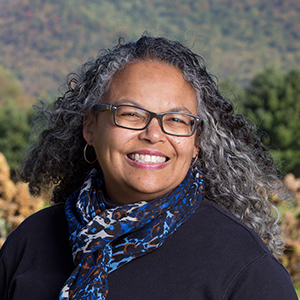Perspectives for the future and advice for aspiring scientists
For the final article in this series, we asked our cohort of African-American male molecular bioscientists (see box) to answer the following questions:
- Based upon your experiences, what advice would you give yourself if you had your career to do over?
- What advice do you have for African-American male students who aspire to careers in science?
Their responses provide insight into a continuing struggle but also convey a sense of optimism.
The struggle continues
In the first two parts of this series, our participants described the challenges of being “the only one.” As they reflected on the future, some of the same concerns came to mind.
Nisan Hubbard, the youngest in the group, said he believes society has a long way to go when it comes to supporting the experience of African-American men in science, technology, engineering and mathematics. “It is hard to market yourself when you are being evaluated on a different spectrum than everyone else,” he said. “There are still obstacles that even the most prepared struggle through. It seems like we have to work harder just to get an inkling of respect.”
Joseph Chaney mentioned the importance of having a critical mass of African-American men in science. “I am hopeful that as we expose more African Americans to the sciences at early ages, we’ll see more positive change,” he said.
The future is bright
Though they are aware of the struggle, our participants generally expressed optimism for the future of African-American men in science.
Christopher Barnes sees efforts being made to ensure more inclusiveness in the scientific community. “It seems that institutions are making a push to increase diversity among their faculty,” he said, “and I think that is an important step to ensure that anyone who strives to be a scientist can and will have the opportunity to do so and be successful at it.”
Craig Cameron sees the issue of critical mass in the context of his institution. “Each year, the number of African-American men who aspire to do science increases,” he said. “I see it here at Penn State. I have gone from having few, if any, African-American men in advanced science courses that I teach to having many. I now have more African-American men seeking out research opportunities in my lab than ever before.”
About parts one & two
The first article in this three-part series focused on the importance of mentoring, particularly for African-American men in the biosciences. The second article discussed managing underrepresentation in science.
Even Hubbard, with his concerns about an uneven playing field, expressed optimism. “We are starting to take the STEM world by storm,” he said. “It is not just one-off experiences, but a continuing flow of talent into the world of science that needs to be maintained and supported. It may not happen in the next quarter-century, but I think we are taking the proper steps to get to that point. And it is African-American men who are taking those steps to be able to achieve.”
How to prepare
The participants offered advice to young African-American men considering careers in science, much of it couched as what they would have told themselves early in their careers.
As the only member of the cohort who did not pursue an academic career, Carleton Barbour had advice that would be valuable for any path. “If I started my career over, I would not be as obsessed with mastering my current job and I would spend more time mastering the skills needed for my next job,” he said. “I advise students to consider their career goals and to master skills that progress them toward those goals, regardless of whether the new skills apply to their current positions. In my experience, those that prepare themselves for their next positions, even before they are comfortable with their current role, are the employees who are the most successful.
“I also advise students to take calculated leaps of faith during their careers and move toward their next desired position as quickly as possible,” he said. “I moved from an industrial research job to an industrial analytical support job to pharmaceutical product development. Each move was a leap of faith that my schooling and experience would ensure my success in the next role.”
Cameron’s career has included academics and consulting. “What matters most is a welcoming environment and nurturing scientific role models and mentors,” he said. “Seek these, and success will likely be a part of the future.”
As the only graduate student in the group, Hubbard expanded on the themes of a welcoming environment and nurturing role models. “I would say to seek support, find your trust circle, self-care when you need to, and also to adapt very quickly to your surroundings and your new life or opportunity,” he said. “New prospects always have aspects that can be hard to get through, can make you question yourself and your abilities; realize that there is light on the other side, but you can’t always do it alone. Find your center, adapt, and do not only survive, but excel. You are there for a reason, and no, it is not the color of your skin but the intellect of your thought and the body of work you bring to the table.”
Barbour offered advice targeted at students considering careers in industry. “I advise students to carefully consider their expectations of their employers and their employers’ expectations of them,” he said. “Since companies exist to sell products and earn money for their owners, students should recognize that continuous employment is not a given and jobs filled with only enjoyable tasks do not exist.
“At the same time, students should be mindful of whether their job expectations are reasonable given their job descriptions,” he said. “There is a fine balance between employees doing too little to justify their jobs and employers asking too much for what they pay.”
Barbour emphasized the importance of being proactive and a self-advocate when building a career in industry. “I should have been much more outspoken early in my career, when my career path at a company was defined,” he said.
Remember that you love science
A strong underlying theme throughout the interviews was these men’s love for science. Though they have experienced challenges and loneliness, each participant emphasized the joy that discovery brought into their lives.
“My career has been challenging and rewarding and provided an ongoing opportunity to be paid to play every day,” Barbour said.
Cameron echoed this sentiment, saying that “the ability to make impactful discoveries and share that experience with a team of extraordinary of human beings” was one of his favorite parts of his career.
Perhaps the most exuberant enthusiasm came from Hubbard. “This is something that I love and something I want to do,” he said. “I understood the frustrations that could come with doing something like this, so it is all about realizing my strength and worth, and buckling down and getting it done. I wouldn’t change it for the world.”
It was an honor to interview these five inspiring men. Their enthusiasm for preparing the next generation of diverse molecular bioscientists is both admirable and infectious. Every one of us, whatever our race, ethnicity or gender, can learn from their lives. In the face of challenges, frustrations, and sometimes downright hostility, they remain positive, optimistic and thoroughly in love with their science.
In Cameron’s words, “The future is bright.”
African-American men in the molecular biosciences — a three-part series
This is the third of three articles exploring the experiences of African-American men in the molecular biosciences through interviews with five African-American men at various stages in their careers, including two students, two faculty members and a researcher in the biotechnology industry.
The careers of these five men span nearly four decades when taken together and include experiences in academia, industry and consulting. Although each has had unique experiences, the commonalities in their stories provide insight into the challenges and opportunities facing African-American men in the molecular biosciences. This series is an exploration of their lived experiences, hopes for the future and advice to the next generation of African-American men who aspire to careers in the molecular biosciences.
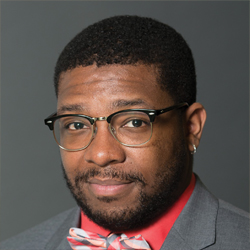 Nisan Hubbard, a doctoral candidate at Northwestern University, is completing a Ph.D. in reproductive biology.
Nisan Hubbard, a doctoral candidate at Northwestern University, is completing a Ph.D. in reproductive biology.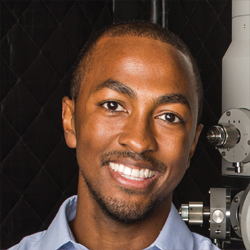 Christopher Barnes is a Howard Hughes Medical Institute Hannah Gray postdoctoral fellow in Pamela Bjorkman’s laboratory at the California Institute of Technology.
Christopher Barnes is a Howard Hughes Medical Institute Hannah Gray postdoctoral fellow in Pamela Bjorkman’s laboratory at the California Institute of Technology.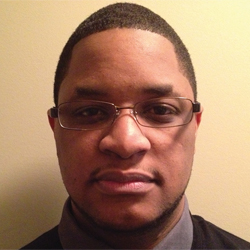 Joseph Chaney is an assistant professor of biochemistry at Xavier University of Louisiana, where he studies molecular nanomotors.
Joseph Chaney is an assistant professor of biochemistry at Xavier University of Louisiana, where he studies molecular nanomotors.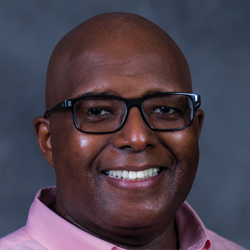 Craig Cameron holds the Eberly family endowed chair in biochemistry and molecular biology at the Pennsylvania State University, and his laboratory focuses on genetic replication in positive-strand RNA viruses and transcription in mitochondria.
Craig Cameron holds the Eberly family endowed chair in biochemistry and molecular biology at the Pennsylvania State University, and his laboratory focuses on genetic replication in positive-strand RNA viruses and transcription in mitochondria.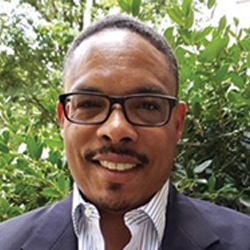 Carleton Barbour is lead scientist in process and analytical development at Emergent BioSolutions, a biotechnology company focused on developing medical countermeasures for biological and chemical threats. He is also the author’s brother.
Carleton Barbour is lead scientist in process and analytical development at Emergent BioSolutions, a biotechnology company focused on developing medical countermeasures for biological and chemical threats. He is also the author’s brother.Enjoy reading ASBMB Today?
Become a member to receive the print edition four times a year and the digital edition monthly.
Learn moreGet the latest from ASBMB Today
Enter your email address, and we’ll send you a weekly email with recent articles, interviews and more.
Latest in Opinions
Opinions highlights or most popular articles

Debugging my code and teaching with ChatGPT
AI tools like ChatGPT have changed the way an assistant professor teaches and does research. But, he asserts that real growth still comes from struggle, and educators must help students use AI wisely — as scaffolds, not shortcuts.

AI in the lab: The power of smarter questions
An assistant professor discusses AI's evolution from a buzzword to a trusted research partner. It helps streamline reviews, troubleshoot code, save time and spark ideas, but its success relies on combining AI with expertise and critical thinking.
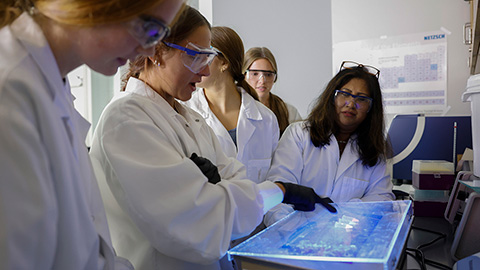
How AlphaFold transformed my classroom into a research lab
A high school science teacher reflects on how AI-integrated technologies help her students ponder realistic research questions with hands-on learning.
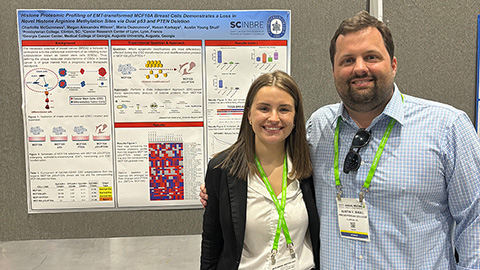
Writing with AI turns chaos into clarity
Associate professor shares how generative AI, used as a creative whiteboard, helps scientists refine ideas, structure complexity and sharpen clarity — transforming the messy process of discovery into compelling science writing.

Teaching AI to listen
A computational medicine graduate student reflects on building natural language processing tools that extract meaning from messy clinical notes — transforming how we identify genetic risk while redefining what it means to listen in science.
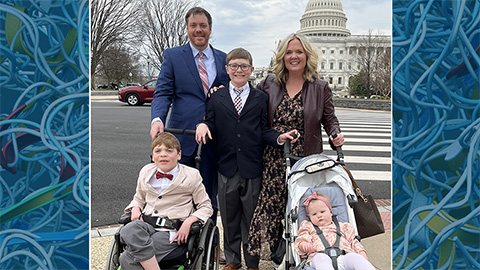
What’s in a diagnosis?
When Jessica Foglio’s son Ben was first diagnosed with cerebral palsy, the label didn’t feel right. Whole exome sequencing revealed a rare disorder called Salla disease. Now Jessica is building community and driving research for answers.

